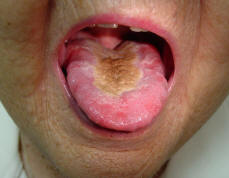Bone marrow transplantation
Osteosarcoma has been reported in a few patients who have undergone bone marrow (stem cell) transplantation.
Injuries
People have wondered whether injury to a bone can cause cancer, but this has never been proven. Many people with bone cancer remember having hurt that part of their bone. Most doctors believe that this did not cause the cancer, but that the cancer caused them to remember the incident, or that the injury drew their attention to that bone and caused them to notice a problem that had already been present for some time.
Radiation
Bone exposure to radiation may also increase the risk of developing bone cancer. A typical x-ray of a bone is not dangerous, but exposure to large doses of radiation does pose a risk. For example, radiation therapy to treat cancer can cause a new cancer to develop in one of the bones in the treatment area. Being treated at a younger age and/or being treated with higher doses of radiation (usually over 60 Gy) increases the risk of developing bone cancer. Exposure to radioactive materials such as radium and strontium can also cause bone cancer because these minerals build up in bones. Non-ionizing radiation, such as microwaves, electromagnetic fields from power lines, cellular phones, and household appliances, does not increase bone cancer risk.






